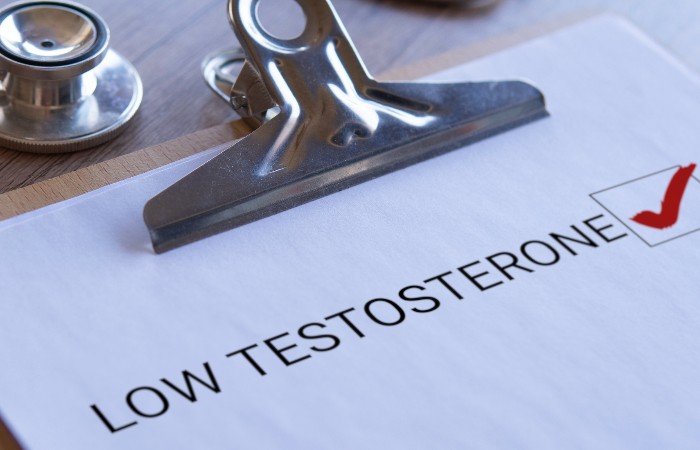Testosterone deficiency in men should be included in national diabetes guidelines
In News
Follow this topic
Bookmark
Record learning outcomes
A group of health experts including medical academics and GPs have called for routine testing for testosterone deficiency (TD) in men to be incorporated into national diabetes guidelines.
The group made four recommendations which it said would improve understanding of TD in the NHS after publishing a study in which over 50 clinicians in England and Wales, including GPs, nurses, endocrinologists, diabetologists, gastroenterologists, cardiologists and specialist physicians, agreed the condition is under-tested and under-treated, particularly in men with type 2 diabetes.
During the study, funded by the pharmaceutical company Besins Healthcare UK Limited, a steering group of nine experts was set up to discuss TD management across the NHS.
Recognising the impact of testosterone deficiency
They considered five areas; recognising the impact of TD; the need to treat TD rather than just symptoms; identifying who to target for TD investigations and why; overcoming perceptions surrounding testosterone replacement therapy; and the future role of education in TD.
Based on detailed discussions, the group recommended that national diabetes guidelines and professional resources include routine TD testing for men with type 2 diabetes to establish “red flag symptoms or diagnoses” and for testosterone replacement therapy to be considered unless contraindicated once TD has been diagnosed.
Other recommendations included the creation of a government-appointed “ambassador for men’s health” who would “drive advocacy for men with TD and reduce the impact of the condition” and early testing for those with and without type 2 diabetes “to reduce the health and cost impact of complications associated with TD”.
The group said clearer diabetes guidance from the National Institute for Health and Care Excellence (NICE) and Scottish Intercollegiate Guidelines Network would “support diagnosis and management”.
“The estimated incidence of symptomatic TD in men aged 40-70 years varies between 2.1 and 5.7 per cent,” the group said, having published a report on the study in The Journal of Sexual Medicine.
Men with type 2 diabetes are at higher risk
“However, men with type 2 diabetes are at higher risk, with a potential estimated 40 per cent of men with type 2 diabetes experiencing symptomatic TD.
The group produced its recommendations having employed the Delphi technique, a structured communication process which is used to gather expert opinions and reach a consensus on complex issues.
“There are currently no NICE guidelines around male hormone deficiency, although there are some local and national society guidance available alongside a NICE clinical knowledge summary on erectile dysfunction (ED),” the report said.
Besins Healthcare UK Limited paid the authors of study a fee
“Currently available guidance suggests that all men with ED should have their testosterone levels assessed as a minimal standard, with re-checking if the individual shows a poor response to phosphodiesterase-5 (PDE5) inhibitors.”
The report said the lack of national guidance was “compounded by the lower level of primary care consultations” taken up by men, who have up to 32 per cent fewer consultations than women. That, the report said, “can contribute to increased male morbidity owing to delayed diagnosis”.
Besins Healthcare UK Limited revealed it paid the authors a fee while carrying out the study and also said it commissioned the medical communications agency Triducive Partners Limited “to facilitate the project, analyse the responses to the consensus statements in line with the Delphi methodology and write the draft manuscript which (it) reviewed”.

